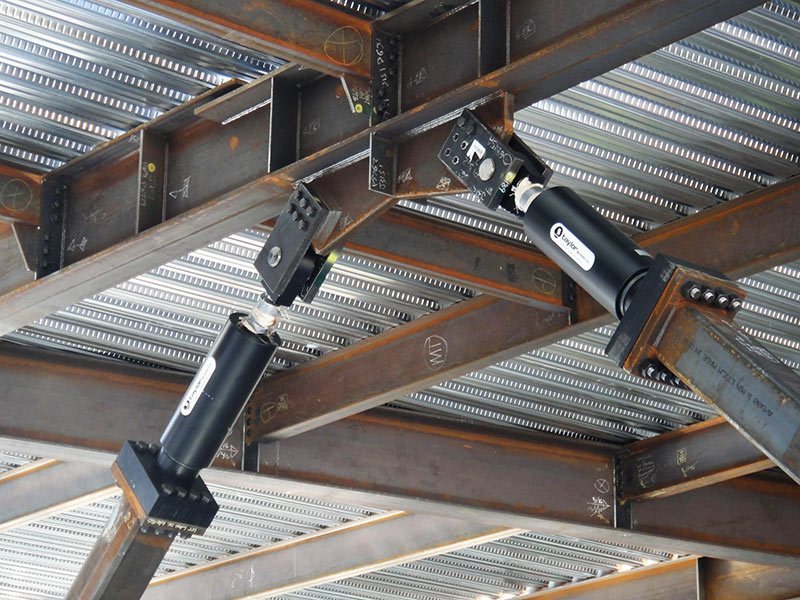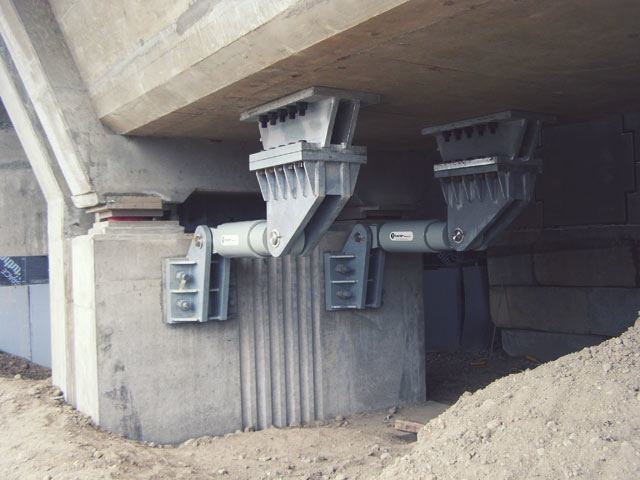
Originally developed for NASA in the 1960s, fluid viscous dampers have successfully transitioned to the civil engineering community for use in protecting buildings, bridges and other structures worldwide. As a 2015 inductee into the Space Technology Hall of Fame, Taylor Devices has been recognized by NASA for innovations for the space program that now improve life on Earth. Stated further, these innovations not only improve life on Earth, but in fact save lives on Earth.
More than 600 buildings and bridges now use Taylor dampers. Our products are made in the United States at our two manufacturing facilities in North Tonawanda, New York. Watch our introductory video to learn more about how our seismic dampers are used to protect structures all over the world.
Products
Seismic Dampers
Our dampers resist dynamic motion and remove energy from a structure during wind or seismic events, allowing it to withstand harsh input energy and reduce harmful deflections, forces and accelerations to structures and occupants.

Lock-Up Devices
Lock-up devices allow unrestricted motion when the bridge structure slowly expands and contracts thermally, yet locks the structural masses together under seismic or wind storm conditions.

Tuned Mass Dampers
Tall slender buildings require damping. Tuned mass dampers are a great option to provide this supplemental damping. Our tuned mass dampers control the response of a building’s mass and springs, reducing acceleration when subjected to high winds. Tuned mass dampers can also be used to reduce pedestrian induced vibrations in pedestrian bridges and long span floors as well as human induced vibrations in stadiums and theaters.

Contact us:
Address: 90 Taylor Drive, North Tonawanda, NY 14120 USA
Phone: +1.716.694.0800
Website: Click Here
- Beware quiet segments of the Philippine Fault - May 16, 2025
-
ډیری عوامل افغاني ټولنې د زلزلې پر وړاندې زیانمنوي
- August 11, 2022 - What’s happening this week in Humboldt County, California: The squeeze - February 6, 2019
